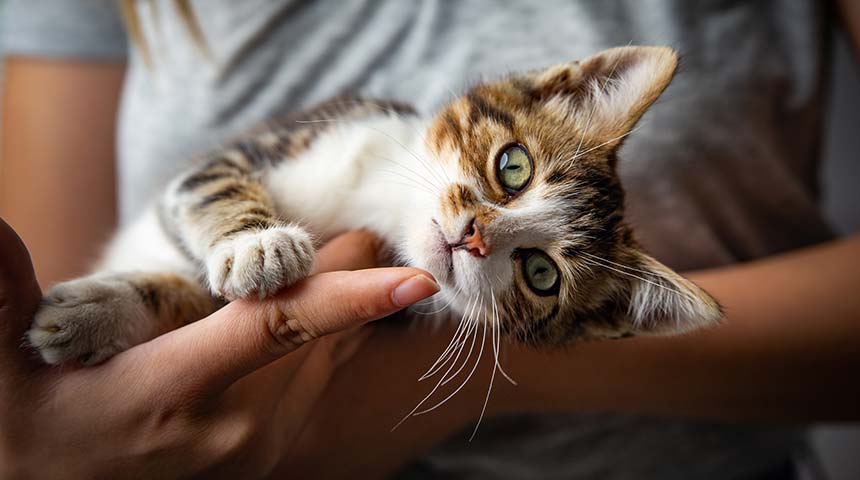
Is your Cat Doing His Business Outside of the Litter Box? What Can You Do?
- Try to determine if your cat recently encountered a stressful event. Stress factors may be subtle, including changes in temperature, moving, arrival of a new cat or family member, changes in its diet or feeding schedule, changes in the type of litter, etc.
- Provide one litter box per cat in the house, plus one. The size of the litter box is also very important: it should be at least as long as the full length of the largest cat in the house (from her nose to the tip of her tail) and as wide as her body. Large clear storage bins make great litter boxes.
- Keep the litter boxes in quiet areas. Avoid highly active and loud areas, as well as areas with lots of activity. Try to place a litter box in a separate room for the affected cat (a room where the other cats or cats do not have access) and to have one box on each floor of the house.
- Do not use covered litter boxes.
- Do not use scented litters or fine granules. If you are unsure which type of littler your cat likes, you can try a few and let him choose.
- Clean the litter every day and change the sand frequently. Boxes should be washed once a month with bleach, diluted in cold water (1 part bleach in 50 parts water, 10 minutes of contact before rinsing).
- Keep the food and water bowls in a calm area that is far from windows or air ducts. Keep the bowls far from the litter box, and ideally, separate from each other.
- The affected cat will need more space and more freedom. Cats are independent creatures who like being in control. Some prefer having their own room, where there is a scratching post, their food and water bowls as well as their litter box.
- Any changes to the daily routine of the cat, including dietary changes, must be made as gradually as possible.
- Aerosol products containing synthetic pheromones to reduce environmental stress can be used (Feliway ®). These aerosols may be used in areas where your cat likes to go. They also exist in as a plug-in diffuser device.
- The cat’s entire environment should be improved in an attempt to further reduce its stress. This can be done by adding hideouts in several parts of the house or by installing shelves on the wall or by giving them access to high furniture.
- A veterinary exam should be performed on any cat that urinates or defecates outside its box to make sure they’re not suffering from a medical problem that could cause the inappropriate behaviour. Your veterinarian may also recommend some stress medication for your cat if a more complex behaviour problem is diagnosed.
Feel free to discuss this issue with our team; they will be happy to give you some advice or redirect you to various helpful resources.
Share:

